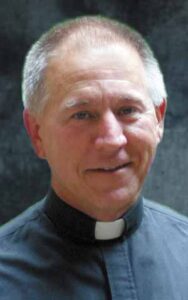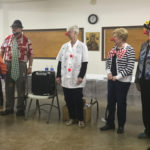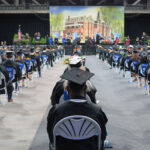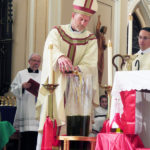By Fr. Bud Grant
It has been half a year since Pope Francis issued the first-ever encyclical on the environment. It is not too early to register its influence on the global conversation. This is his expressed goal: “I urgently appeal,” he says, “for a new dialogue about how we are shaping the future of the planet. We need a conversation that includes everyone…” (LS 14).

In July the United Nations welcomed Laudato Si as a “clarion call” to action, a “moral imperative” that focuses attention on “the world’s poorest and most vulnerable” who “suffer most from the changes we are seeing.” (U.N. Climate Change Newsroom). The U.S. Congress seems to have been less impressed. According to Politico, hours after his visit House Republicans “took up a bill that would block the government from measuring the carbon impact of construction sites” (9.24.15). More recently, Senator Ted Cruz repeated his oft made, and as often rebutted, assertion that “for the past 18 years … there has been no significant warming” (Science, Dec. 9, 2015). Of the Republican candidates still running for president, none are willing to concede that climate change is real and anthropogenic. But this is a minority view among Republicans, 54 percent accept human-caused climate change and even support a carbon tax to address it (Washington Post, Jan. 12, 2016).
In November, the Yale Project on Climate Change Communication issued a report that studied the “Francis Effect.” They polled Americans Catholics, Protestants and evangelicals both prior to the release of Laudato Si and after his visit to the U.S. “In this report we conclude that, over the past six months, Americans — especially Catholic Americans — became more engaged in and concerned about global warming. Furthermore, our findings suggest that the pope’s teachings about global warming contributed to an increase in public engagement on the issue and influenced the conversation about global warming in America; we refer to this as The Francis Effect.” The needle moved for all groups. Among all Americans, 59 percent now are “worried or very worried” as opposed to 51 percent earlier. Catholics, 64 percent vs 53 percent; Protestants, 57 percent over 47 percent; Evangelicals, 43 percent to 39 percent. Seventeen percent of Americans say the pope has had at least “a little” influence on them; 35 percent of Catholics, 27 percent of Protestants and 18 percent of evangelicals say the same.
More people agree that climate change inordinately impacts the world’s poorest and future generations: up 15 percent among Americans and 17 percent for Catholics. This is a central theme of the encyclical: “Climate change is a global problem with grave implications: environmental, social, economic, political and for the distribution of goods … its worst impact will probably be felt by developing countries…many of the poor live in areas particularly affected by the phenomena related to warming…” (LS 25).
Washington Post writer Chris Mooney cites Laudato Si in a recent article (Feb. 5) in which he says that the journal Scientific Reports confirms with hard data the prophetic warning of the pope: “it is indeed the countries with the most to lose that tend to contribute to the problem least — and the other way round.” Or, to quote James Watson (University of Queenland), “the general rule is, at a global scale, if you’re a nation that is going to suffer from climate change, you’re very likely not contributing to the problem.”
A prophet, in our tradition, is not one who predicts future events (that would be a “seer”) but rather one who reads the “signs of the times” in order to warn people of the consequences of their actions…like a doctor detailing the health consequences of smoking or a teacher explaining what happens to students who don’t study. Pope Francis is a prophet for our “anthropocene” epoch, in which humans have become the primary drivers of ecology. Lent is our opportunity to examine our lives for whatever impairs our relationship with Christ. In this regard we could hardly do better than to be influenced by this prophetic pope.
(Father Bud Grant is a professor of theology at St. Ambrose University in Davenport.)











